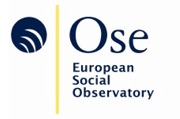CAPRIGHT is a European research work funded by the European Commission (DG research, under the Sixth Framework Programme - FP6) and coordinated by Nancy University/CNRS. It aims at the promotion of individual and collective capabilities, studying the relations between labour markets, employment and welfare regimes: the objective of CAPRIGHT is to build an innovative theoretical framework offering a basis for new understandings of these relations.

CAPRIGHT takes its origins from the former EUROCAP project and integrates two approaches: one addresses resource regimes (RESORE), the other inequalities in capabilities, developed from the work of Amartya Sen (EUROCAP). Combining these approaches, the priority is to allow every person, wherever they live and work, to develop their own future with the resources that are available to them.
The European Social Observatory took part in the former EUROCAP network and has been a member of CAPRIGHT since its creation. The OSE was involved in Work Package 5 – “Social dialogue, rights and capabilities - New insights on the European public action”. The aim was to evaluate to what extent the palette of European instruments (fundamental rights, legislation, open method of coordination and other soft methods) took into account the development of collective capabilities in the context of the European Social Dialogue. The general concern of Work Package 5 combined three different objectives and specific outputs: the realization of case studies (with a special focus on capabilities for voice during restructuring events), flexicurity and social dialogue, and the construction of a theoretical approach to social and civil dialogue in Europe. Ramón Peña-Casas, Paolo Ballerini and Romana Careja were engaged in the writing of a transversal report that summarizes and reconnects the main findings emerging from the country case studies.
OSE team members involved in this project: Ramón Peña-Casas, Paolo Ballerini and Romana Careja
